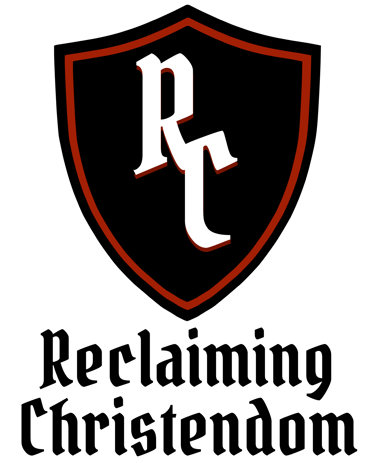

MARCH AGAINST MURDER AND THE MODERN MIND.
by Gavin Ashenden
Ten million children, have been ‘disposed of’ since 1967.
The verb we choose matters. Because arguably the right word, the clearest most accurate word, the word that tells us most of the truth, is ‘murdered’.
Why would a society murder its children? For most of my life I would not have used the word murdered. ‘Aborted’ is a horrible word, but so specifically linked to the removal of a child from its mother’s womb that we had got used to it. It was the numbers that jolted me out of my ‘modern-mind’ complacency into a new perspective which forced me to ask new questions.
I was hosting a BBC weekly three hour radio program on Sunday mornings in the south east of England, part of which was dedicated to phone-ins. A woman with a bee in her bonnet about abortion phoned in and began to complain. I couldn’t muster much personal interest but out of professional concern I began to google the subject to see if I could put together a framework of facts. The number leapt off the screen at me. Six million. Six million? Without realising I was talking out loud and it was on air, in an astounded voice, “Six million. That’s a holocaust.”
It is indeed the Holocaust number that haunts the European imagination. (Except of course by the holocaust deniers, who for some strange reasons think that the number has been grossly exaggerated by the Jews themselves to gain political leveraging self-pity. But they are a distraction today.)
For the apocalyptically minded 666, is the number of evil. For the people of Europe, born after 1945, six million is the number of evil. Not just evil, but the evidence of a corrupting metaphysical force of evil, because it is inconceivable that human beings can destroy each other with such brutality, while telling themselves such lies, and in such numbers.
Suddenly I joined the dots. The numbers did it. The scale was too great. It broke the fiction of medical care for mothers and turned six million wombs into chambers of death, where the smallest of children were not gassed, but cut, hacked and sucked to oblivion.
I began to shift my position from that moment. Nothing more happened during the phone-in, except that perhaps my voice lost a degree of disinterest on that subject, but the following morning the station editor invited me in for a swift and unambiguous confrontation. “If you ever link together the holocaust and abortion on air at the BBC again, we will pull the plug on the transmission and show you out onto the street.”
I went away wrapped in thought. New thought.
I’m sorry that I cannot be at the March for Life in London on September 6th. But I want to pay tribute to all the people who do march to save the babies. I will try to use my words instead of my legs.
What has taken me aback is the depth of the grip of the ideas that have turned an otherwise kind and generous culture into tolerating the transition of wombs into death camps.
My first chain of thought led me to a conviction that evil was real. From there I realised that meant there must be a good God (or how else could I call evil, evil in contradistinction to good?) And thence to an encounter with Christ, the incarnation of God, and so I became a practising Christian.
But, as we look at the issues that confront us, as many of you know from my other writing, I am very taken with the perception of Jordan Peterson that in many cases it’s not that people who have ideas, it’s that ideas have the people. There is a good deal of ideological possession or oppression; as well as the ‘spirit stuff.’
And there is no great distinction in my mind between evil spirits and ideas. I’m not saying they are the same. But I am saying they are more closely related than we imagine.
If we look at the nature of the ideas that our culture has been possessed by, the situation is both more drastic than we thought, but also with a more obvious solution. A kind of ideological exorcism confronting the Modern mind with the Catholic mind.
We have experienced a kind of wholesale brain-washing producing something we might call the modern mind. And we have an antidote to that. It is the Catholic mind.
This is the mind that built the best of our civilisation, and most importantly, this is the mind which perceives, celebrates and protects the human person as sacred, because we are made in the image of God.
At the simpler level of ideological conflict is the claim of Feminism that women should and do have control over their own bodies. Leaving aside the questions that arise from our living in community with each other rather than an atomised individualisms, we agree they should. But we want to contest inconsistency.
It is exactly because we acknowledge a person has the right and responsibility over their bodies that we have to reject the sleight of hand feminists use to ignore the responsibility to their bodies not to behave in a way that leads to them being impregnated. “My body my choice” ought to extend to who you sleep with and how you sleep with them. But it doesn’t. Inconsistency is not the most important issue though . Something more important than that is at stake.
In a recent conversation with Sebastian Morello, ( https://drgavinashenden.substack.com/p/in-search-of-the-renewed-catholic?r=61gaxh&utm_campaign=post&utm_medium=web&showWelcomeOnShare=false) he traced the modern mindset to the influence of René Descartes.
Descartes drew a new map for of the mind and for the mind. “Cogito, ergo sum” , “I think therefore I am” dislocated humanity from the safe space of belonging to God. What sounds to us like a truism cut the umbilical cord of our ontology. It broke our sense that we had come from God, were held in being by God, and were returning to God.
It replaced this with a self-referential self-sufficiency. ‘I know myself by my thinking, and my thinking defines all I need to know about myself’, setting ‘me’ up as an independent autonomous being, self-sufficient in my own mind.
Before this, the common perception might have been summed up by Aquinas’ “ipsum esse subsistens” (Being itself subsisting).
Ontology, the understanding of who we were was understood as participating in the divine being who had created us.
St Paul reminded his Greek audience that Greek philosophers shared this perception with Christians. In his phrase "God in whom I live and move and have my being" is found in Acts 17:28. Paul is quoting the Greek philosopher Aratus. The Logos was a perception shared by Greeks and Christians, but the Christians gave it a name, Jesus. More than that, the intelligence that created matter, ordered it and enlivened it, had taken form in matter. He had become incarnate. The similarity between us and Him strengthened our sense we shared something in him, as he so obviously shared something of us.
Both Plato and Augustine saw humanity as in some way shadows or reflections of divine reality.
Before Descartes there was a sense that we were contingent beings. But the Christian vision of God saw everything as sharing in God’s being. It was He who sustained it. There was nowhere else anything could have come from but from Him.
Paul described it succinctly; “He is the image of the invisible God, the firstborn over all creation. For by Him all things were created that are in heaven and that are on earth, visible and invisible, whether thrones or dominions or principalities or powers. All things were created through Him and for Him. And He is before all things, and in Him all things consist” (Colossians 1:15-17).
In this perspective, all matter in some part, was an aspect of our connection with God. But the moment Descartes (on our behalf) offered a different way of looking at ourselves, separated from God, then matter loses it radiance, connection, significance, and just becomes as Morello succinctly put it, ‘stuff’.
But the problem with ‘stuff’ is that it is without status. It become dispensable and disposable. It is, after all, just stuff. We don’t even have responsibility for it, unless not looking after it is against our interest.
And if reality, and worth depend on our thinking, what happens if our thoughts are darkened, shadowed or corrupted? What happens if we lose sight even of our own significance, because the process of thinking suddenly becomes barren, pointless, incompetent, self-destructive. What or who will save us when we cannot? What or who will save us from ourselves.Write your text here...
The argument used to justify cleansing the womb from an inconvenient life, is that the foetus is “just a bunch of cells.” In other words, it’s just ‘stuff’. It has not status, no respect, no autonomy, no rights, no recognition. We can get rid of it.
When we point out that life might (or does) begin at conception, we are asked to prove it. And soon we are wrangling about who defines ‘life’, and we don’t get very far.
But if instead of arguing over when life enervates cells that divide, we recognise that all matter shares in the being of God, and its deeper significance depends rather on how it is organised, and what form it takes, there is a great change of perspective. The clump of cells, become immediately not a matter of biological potential, but ‘matter imaging God’ from the first nano second of conception. It doesn’t have to ‘become’. It already ‘is’.
There is another danger to ‘stuff.’ It doesn’t just apply to babies forming in the womb.
It can extend to fully grown humans who are not useful; or humans at the end of their lives who have lost their significance to everyone but themselves; or to humans in the middle of life who lose sense of their worth or purpose; or the wrong kind of people. Like the Jews. Six million of the wrong kind of stuff. Once the quality goes, the numbers hardly matter.
We can’t easily convince the feminists that the clumps of cells are people. But even if we did, and sometimes we try (and fail) by telling them that half the aborted babies are women. And don’t feminists owe women any protection? But it makes no difference. Stuff is stuff.
What we might find more effective is to challenge and repudiate the faintly ludicrous and hubristic sense of ourselves.
The notion that we are in any way independent beings, since we had no choice over whether we were born, the parents we were born to, how long we live or what happens after we die. And in the meantime, we don’t have very much control over our thoughts and circumstances either. Sometimes some; sometimes very little. Our competence as human beings, surrounded by chance, accidents and worse doesn’t really support such self confidence.
In the struggle to save our culture from the mind-virus of modernity, good arguments by themselves are not quite enough. What we need to be able to offer is the Catholic mind. The perspective that all humans are sacred because we image God, we were conceived and born in the image and likeness of God; and further, even all matter is more than stuff, because it didn’t come from nowhere, it is part of God, held in being by God, and cannot be disrespected or treated as disposable ‘stuff.’
We may not want to begin by comparing Descartes with Aquinas or St John or St Paul, but if we can reconnect our neighbours with the reality of God being where we come from, where we go, and the ground, essence and purpose of our being in the meantime, other ideas and priorities may begin to shift shape and order of importance.
The people we live amongst are sacred. We are sacred. We don’t have to invent or earn our own significance, it has been stamped on and in us. His fingerprints are on us.. They permeate us to the bone, or the code of our DNA. ‘Things’ are not disposable either. All stuff holds together in God and for God.
Suddenly we are not longer isolated and atomised. We are not longer separate and alienated. We are all connected and held, with matter.
Jesus saves mankind, but Catholicism will save our culture.


